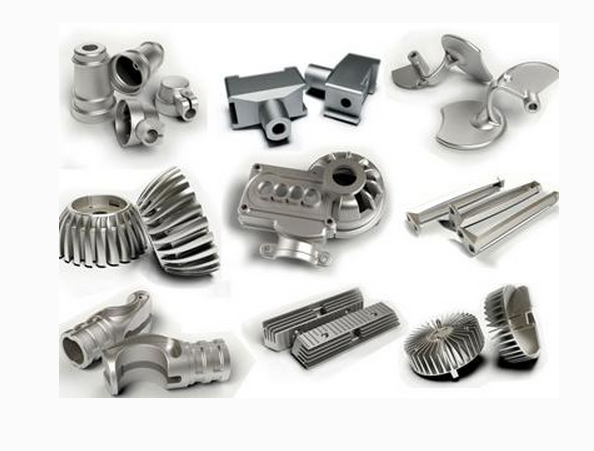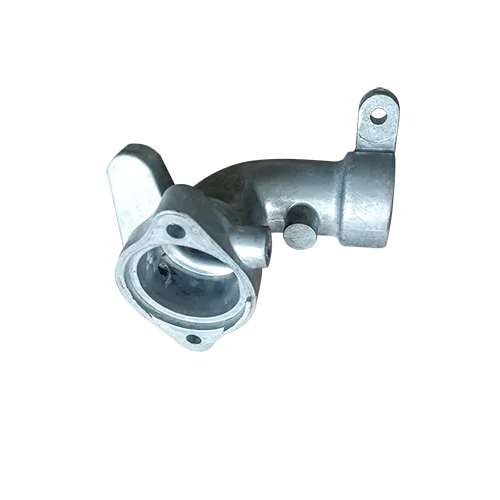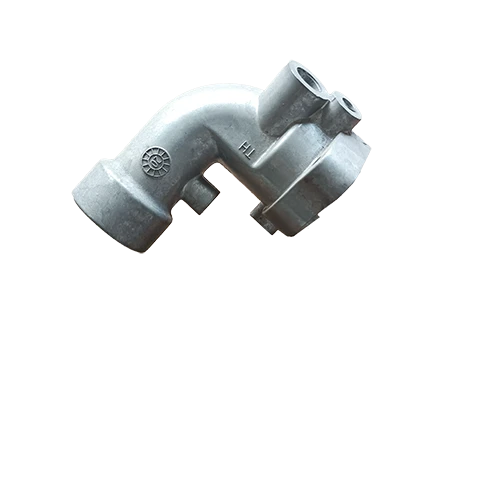Móvil:+86-311-808-126-83
Correo electrónico:info@ydcastings.com
Advanced Metal Casting-Hebei Yuanda Trade|Die Casting&Semi-Solid Processing

Understanding Modern Metal Casting Technologies
Automotive parts manufacturing relies heavily on casting technologies, which account for approximately 15-20% of all vehicle components. These processes are critical for producing power system components and structural elements with precision and durability. According to the National Institute of Standards and Technology (NIST), advancements in casting technology have significantly improved product quality and production efficiency while reducing environmental impact.
Casting Technology: Foundation of Automotive Manufacturing
Casting remains a fundamental process in automotive manufacturing, particularly for critical components. Developed nations like the United States and European countries have established advanced casting techniques that ensure high-quality outputs with minimal waste. These regions employ digital technologies to optimize casting design, achieving scrap rates as low as 2-5%. In contrast, China's casting industry, while producing large volumes, often lacks the technical sophistication of its international counterparts.

El automotive electric water pump is a prime example of how casting technology enhances vehicle performance. These components are designed using high-pressure casting methods, ensuring dimensional accuracy and surface quality. The result is improved compatibility with other vehicle systems, contributing to overall stability and safety.
Die Casting: Precision and Efficiency in Action
Die casting is a key process in modern automotive manufacturing, enabling the production of complex parts with high precision. By injecting molten metal into a mold under high pressure, this technique ensures that components meet exacting standards. The use of aluminum and zinc alloys in die casting provides exceptional strength and durability, making them ideal for automotive applications.
According to NIST research, die casting processes have evolved to incorporate digital modeling and simulation, allowing manufacturers to predict and optimize outcomes. This approach not only improves efficiency but also reduces material waste, aligning with global sustainability goals.
El auto electric water pump is a testament to the capabilities of die casting. These pumps are designed to regulate engine temperature efficiently, ensuring optimal performance under various conditions. Their lightweight construction and robust design make them a preferred choice for modern vehicles.
Semi-Solid Processing: A New Frontier in Automotive Manufacturing
Semi-solid processing technology is emerging as a game-changer in the production of automotive components. This method is particularly effective for creating integrated magnesium and aluminum alloy castings, addressing challenges related to performance and cost. The technology allows for thinner casting walls (1-1.5mm) and improved mold design, making it a viable solution for lightweight vehicle construction.
As highlighted by NIST's studies on material science, magnesium alloys are gaining traction in the automotive industry due to their high strength-to-weight ratio and corrosion resistance. This makes them ideal for applications where weight reduction is critical, such as in electric vehicles and high-performance cars.
El engine manifolds produced using semi-solid processing exemplify the benefits of this technology. These components are designed to enhance airflow and fuel efficiency, contributing to improved vehicle performance and reduced emissions.
Integrated Design: The Future of Automotive Manufacturing
With the automotive industry increasingly focused on energy efficiency and cost reduction, integrated design has become a key trend. By optimizing part structures and reducing the number of components, manufacturers can achieve significant weight savings and streamline production processes. This approach not only lowers costs but also enhances the overall performance of the vehicle.
According to NIST's guidelines on manufacturing innovation, integrated design principles are being adopted to create more sustainable and efficient vehicles. By leveraging advanced design software and simulation tools, engineers can test and refine concepts before production, ensuring that final products meet stringent quality standards.
Technical Specifications and Applications
| Material | ADC-12, A380 |
|---|---|
| Process | High Pressure Casting |
| Specification | 0.5-2kg |
Company Background: Hebei Yuanda Trade Co., Ltd.
Hebei Yuanda Trade Co., Ltd. is a leading manufacturer specializing in automotive accessories, with a focus on metal casting and processing technologies. The company has established itself as a reliable supplier of high-quality components, serving a diverse range of industries. Their commitment to innovation and quality is reflected in their product offerings, which include automotive electric water pumps and engine manifolds.
With a strong emphasis on research and development, Hebei Yuanda Trade Co., Ltd. continues to push the boundaries of what is possible in automotive manufacturing. Their state-of-the-art facilities and skilled workforce ensure that they remain at the forefront of industry advancements.
Conclusion
The automotive industry is undergoing a transformation driven by advancements in metal casting and processing technologies. From traditional casting methods to innovative semi-solid processing, manufacturers are leveraging these techniques to create lighter, more efficient, and environmentally friendly vehicles. As the demand for sustainable solutions grows, companies like Hebei Yuanda Trade Co., Ltd. will play a crucial role in shaping the future of automotive manufacturing.
References
National Institute of Standards and Technology (NIST). (n.d.). Manufacturing and Materials Research. Retrieved from https://www.nist.gov
National Institute of Standards and Technology (NIST). (n.d.). Material Science and Engineering. Retrieved from https://www.nist.gov
National Institute of Standards and Technology (NIST). (n.d.). Standards and Innovation in Manufacturing. Retrieved from https://www.nist.gov
-
Materials Used in Manufacturing Cap End Pipe FittingsNoticiasNov.24,2025
-
Material Properties of CF8M CastingNoticiasNov.24,2025
-
How to Inspect Pump Cap Ends for DamageNoticiasNov.21,2025
-
Backward Curved Impeller – Efficient Airflow Solutions for Industry | YD CastingsNoticiasNov.21,2025
-
Automobile Water Pump - Efficient, Quiet, Durable & ElectricNoticiasNov.21,2025
-
Impeller for Pumps – High-Efficiency, Durable, OEM-ReadyNoticiasNov.21,2025
Advanced Metal Casting-Hebei Yuanda Trade|Die Casting&Semi-Solid Processing
Automotive accessories have become a cornerstone of modern vehicle engineering, with metal casting and processing technologies playing a pivotal role in shaping the performance, safety, and efficiency of vehicles. As the industry evolves, manufacturers are increasingly adopting advanced techniques to meet the demands of lightweight design, environmental sustainability, and high-performance requirements. This article explores the latest developments in metal casting technologies, their advantages, and how they are transforming the automotive sector.
Understanding Modern Metal Casting Technologies
Automotive parts manufacturing relies heavily on casting technologies, which account for approximately 15-20% of all vehicle components. These processes are critical for producing power system components and structural elements with precision and durability. According to the National Institute of Standards and Technology (NIST), advancements in casting technology have significantly improved product quality and production efficiency while reducing environmental impact.
Casting Technology: Foundation of Automotive Manufacturing
Casting remains a fundamental process in automotive manufacturing, particularly for critical components. Developed nations like the United States and European countries have established advanced casting techniques that ensure high-quality outputs with minimal waste. These regions employ digital technologies to optimize casting design, achieving scrap rates as low as 2-5%. In contrast, China's casting industry, while producing large volumes, often lacks the technical sophistication of its international counterparts.

El automotive electric water pump is a prime example of how casting technology enhances vehicle performance. These components are designed using high-pressure casting methods, ensuring dimensional accuracy and surface quality. The result is improved compatibility with other vehicle systems, contributing to overall stability and safety.
Die Casting: Precision and Efficiency in Action
Die casting is a key process in modern automotive manufacturing, enabling the production of complex parts with high precision. By injecting molten metal into a mold under high pressure, this technique ensures that components meet exacting standards. The use of aluminum and zinc alloys in die casting provides exceptional strength and durability, making them ideal for automotive applications.
According to NIST research, die casting processes have evolved to incorporate digital modeling and simulation, allowing manufacturers to predict and optimize outcomes. This approach not only improves efficiency but also reduces material waste, aligning with global sustainability goals.

El auto electric water pump is a testament to the capabilities of die casting. These pumps are designed to regulate engine temperature efficiently, ensuring optimal performance under various conditions. Their lightweight construction and robust design make them a preferred choice for modern vehicles.
Semi-Solid Processing: A New Frontier in Automotive Manufacturing
Semi-solid processing technology is emerging as a game-changer in the production of automotive components. This method is particularly effective for creating integrated magnesium and aluminum alloy castings, addressing challenges related to performance and cost. The technology allows for thinner casting walls (1-1.5mm) and improved mold design, making it a viable solution for lightweight vehicle construction.
As highlighted by NIST's studies on material science, magnesium alloys are gaining traction in the automotive industry due to their high strength-to-weight ratio and corrosion resistance. This makes them ideal for applications where weight reduction is critical, such as in electric vehicles and high-performance cars.

El engine manifolds produced using semi-solid processing exemplify the benefits of this technology. These components are designed to enhance airflow and fuel efficiency, contributing to improved vehicle performance and reduced emissions.
Integrated Design: The Future of Automotive Manufacturing
With the automotive industry increasingly focused on energy efficiency and cost reduction, integrated design has become a key trend. By optimizing part structures and reducing the number of components, manufacturers can achieve significant weight savings and streamline production processes. This approach not only lowers costs but also enhances the overall performance of the vehicle.
According to NIST's guidelines on manufacturing innovation, integrated design principles are being adopted to create more sustainable and efficient vehicles. By leveraging advanced design software and simulation tools, engineers can test and refine concepts before production, ensuring that final products meet stringent quality standards.
Technical Specifications and Applications
| Material | ADC-12, A380 |
|---|---|
| Process | High Pressure Casting |
| Specification | 0.5-2kg |
Company Background: Hebei Yuanda Trade Co., Ltd.
Hebei Yuanda Trade Co., Ltd. is a leading manufacturer specializing in automotive accessories, with a focus on metal casting and processing technologies. The company has established itself as a reliable supplier of high-quality components, serving a diverse range of industries. Their commitment to innovation and quality is reflected in their product offerings, which include automotive electric water pumps and engine manifolds.
With a strong emphasis on research and development, Hebei Yuanda Trade Co., Ltd. continues to push the boundaries of what is possible in automotive manufacturing. Their state-of-the-art facilities and skilled workforce ensure that they remain at the forefront of industry advancements.
Conclusion
The automotive industry is undergoing a transformation driven by advancements in metal casting and processing technologies. From traditional casting methods to innovative semi-solid processing, manufacturers are leveraging these techniques to create lighter, more efficient, and environmentally friendly vehicles. As the demand for sustainable solutions grows, companies like Hebei Yuanda Trade Co., Ltd. will play a crucial role in shaping the future of automotive manufacturing.
References
National Institute of Standards and Technology (NIST). (n.d.). Manufacturing and Materials Research. Retrieved from https://www.nist.gov
National Institute of Standards and Technology (NIST). (n.d.). Material Science and Engineering. Retrieved from https://www.nist.gov
National Institute of Standards and Technology (NIST). (n.d.). Standards and Innovation in Manufacturing. Retrieved from https://www.nist.gov
-
Materials Used in Manufacturing Cap End Pipe FittingsNoticiasNov.24,2025
-
Material Properties of CF8M CastingNoticiasNov.24,2025
-
How to Inspect Pump Cap Ends for DamageNoticiasNov.21,2025
-
Backward Curved Impeller – Efficient Airflow Solutions for Industry | YD CastingsNoticiasNov.21,2025
-
Automobile Water Pump - Efficient, Quiet, Durable & ElectricNoticiasNov.21,2025
-
Impeller for Pumps – High-Efficiency, Durable, OEM-ReadyNoticiasNov.21,2025











